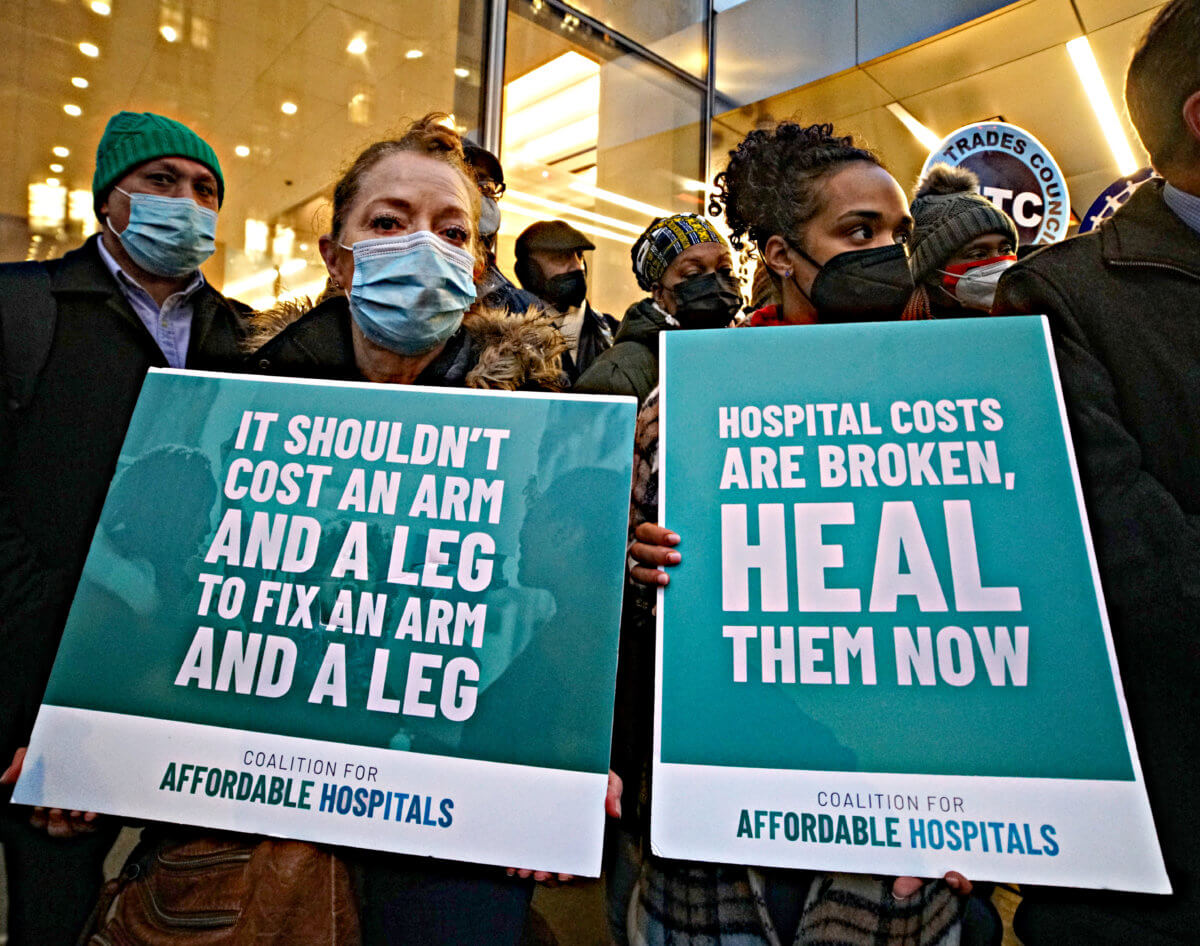
What You Should Know:
– The 32BJ Health Fund, a self-insured fund that provides care for 32BJ SEIU members and their dependents, today released a report that lays bare the stark price disparities between Medicare and private hospitals, and outlines solutions to both reins in prices and holds hospital systems accountable for these practices.
– The report, titled, ‘Hospital Prices: Unsustainable and Unjustifiable’ found that hospital prices are dramatically rising, the main driver in the overall increased cost of care that is leaving patients without reliable and affordable access to potentially life-saving procedures.
Key Findings
Amid the report’s key findings that could have national implications is that if New York City’s healthcare cost utilization and expenditure breakdown mirror the Fund’s, then it may be paying more than $2 billion per year above what Medicare pays for the same hospital services. These taxpayer funds could provide critical services and programs at the height of an affordability crisis and also stave off the need for job cuts.
Other key highlights include:
– Private hospital networks charged the Fund over 300% of what they charged Medicare for the same services. The Fund, if charged the same rate as Medicare, would have saved roughly $1.1 billion from 2016-2019 (58%).
– The 32BJ Health Fund report found no correlation between increased hospital prices and enhanced quality of care or improved health outcomes for patients.
– The majority (56%) of the Fund’s total spending in 2019 went to cover hospital services.
– Escalating healthcare prices may have cost 32BJ members as much as $5,000 a year in wage increases over the past decade.
– New York City hospital costs have increased significantly faster than surrounding states and are much higher than costs in Boston, a comparably expensive market.
“The Health Fund’s important and timely report makes clear how high hospital prices put access to critical care in jeopardy, hitting vulnerable patients in need of life-saving care hardest,” said Kyle Bragg, President of 32BJ SEIU and Health Fund chair. “This cannot continue, as it is taking money out of the pockets of hard-working people. Every dollar going towards unjustified hospital prices is a dollar that could be better spent on family-sustaining wages and benefits. In light of this report, the City must step up and curb out-of-control hospital pricing now.”
4 Strategies to Lower Hospital Prices
Panelists suggested and discussed the following strategies to lower hospital prices:
1. The Creation of an Aggregated Purchasing Coalition
Forming an Aggregated Purchasing Coalition (APC) in the New York City market to collectively procure healthcare services through negotiations with healthcare providers may help private insurers control rampant price increases. By bringing together the City, large private health plans, unions and employers, an APC could collectively negotiate with private hospitals to create savings, freeing up more money to provide better wages and benefits for workers.
2. Ending Anti-Competitive Hospital Contracting
State Legislators and Attorneys General have begun cracking down on all or nothing contracting, anti-tiering provisions, and gag orders in hospital contracts. In New York State Legislature, HEAL (Hospital Equity and Affordability Law, S7199/A8169) would forbid these kinds of clauses.
3. Ensuring Hospitals Behave as True Non-Profits
Hospitals must be held accountable and live up to their nonprofit status. In New York City, private hospital systems received over $363 million in property tax abatements in 2021. States and Municipalities across the country have enacted requirements that hospitals deliver significant amounts of charity care and refrain from profit seeking behavior in order to receive such favorable tax treatment.
4. Legislating Statewide Rate Setting of Hospital Prices
Several states have enacted rate setting, global budgets, and all payer models to rein in hospital pricing.
“Private employers and other commercial payers – large and small – bring health care to the majority of working New Yorkers, and without continued efforts to bring down hospital prices, the current model is unsustainable,” said Suzanne Delbanco, Executive Director, Catalyst for Payment Reform. “The 32BJ Health Fund can blaze a trail for self-insured funds across the U.S. to follow when it comes to fighting for and delivering high quality care at an affordable price.”
